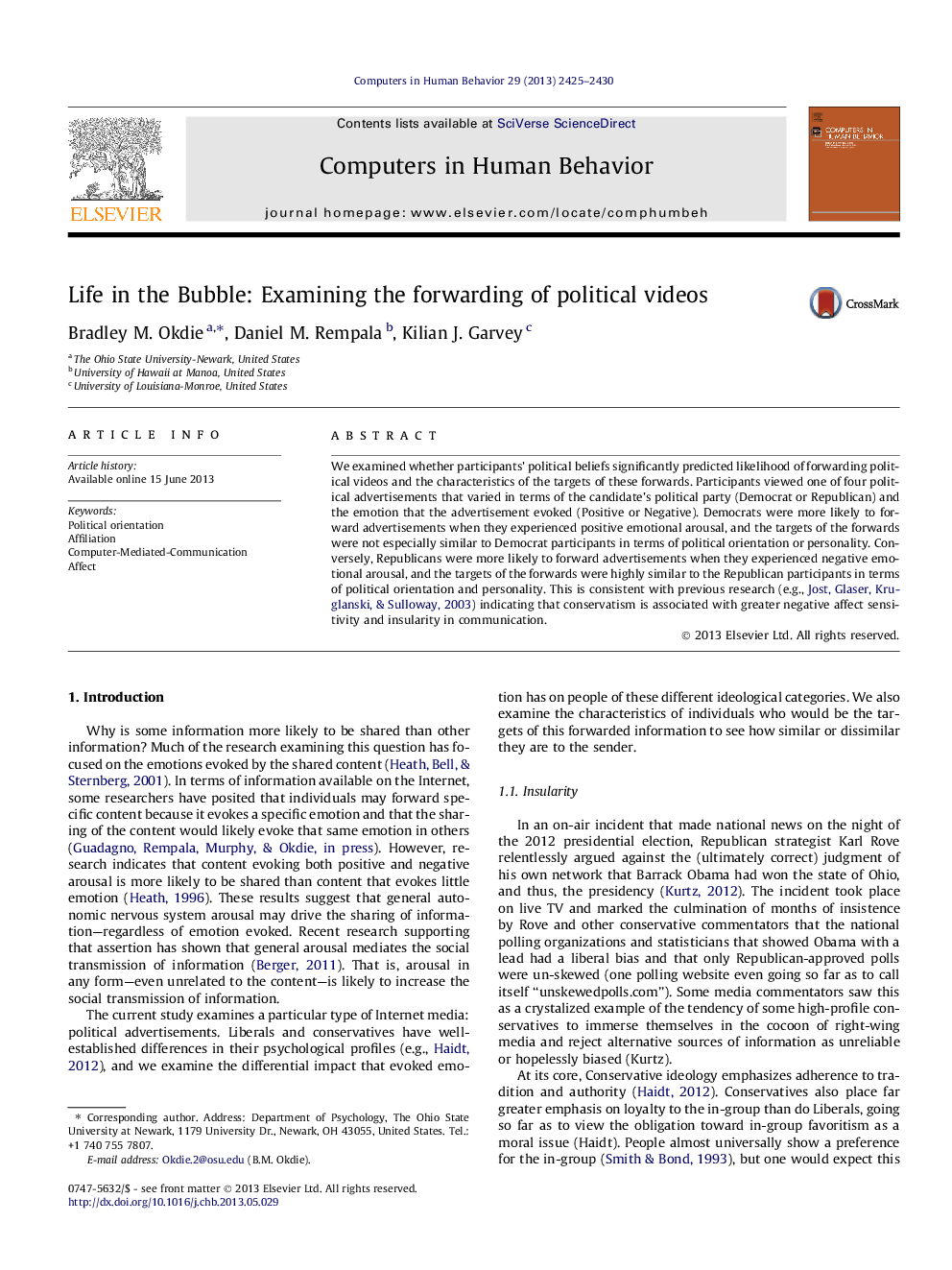| Article ID | Journal | Published Year | Pages | File Type |
|---|---|---|---|---|
| 350835 | Computers in Human Behavior | 2013 | 6 Pages |
•Democrats forwarded political information when it elicited positive emotion.•Democrats were not politically or dispositionally similar to the targets of their forwards.•Republicans forwarded political information when it elicited negative emotion.•Republicans were politically and dispositionally similar to the targets of their forwards.
We examined whether participants’ political beliefs significantly predicted likelihood of forwarding political videos and the characteristics of the targets of these forwards. Participants viewed one of four political advertisements that varied in terms of the candidate’s political party (Democrat or Republican) and the emotion that the advertisement evoked (Positive or Negative). Democrats were more likely to forward advertisements when they experienced positive emotional arousal, and the targets of the forwards were not especially similar to Democrat participants in terms of political orientation or personality. Conversely, Republicans were more likely to forward advertisements when they experienced negative emotional arousal, and the targets of the forwards were highly similar to the Republican participants in terms of political orientation and personality. This is consistent with previous research (e.g., Jost, Glaser, Kruglanski, & Sulloway, 2003) indicating that conservatism is associated with greater negative affect sensitivity and insularity in communication.
